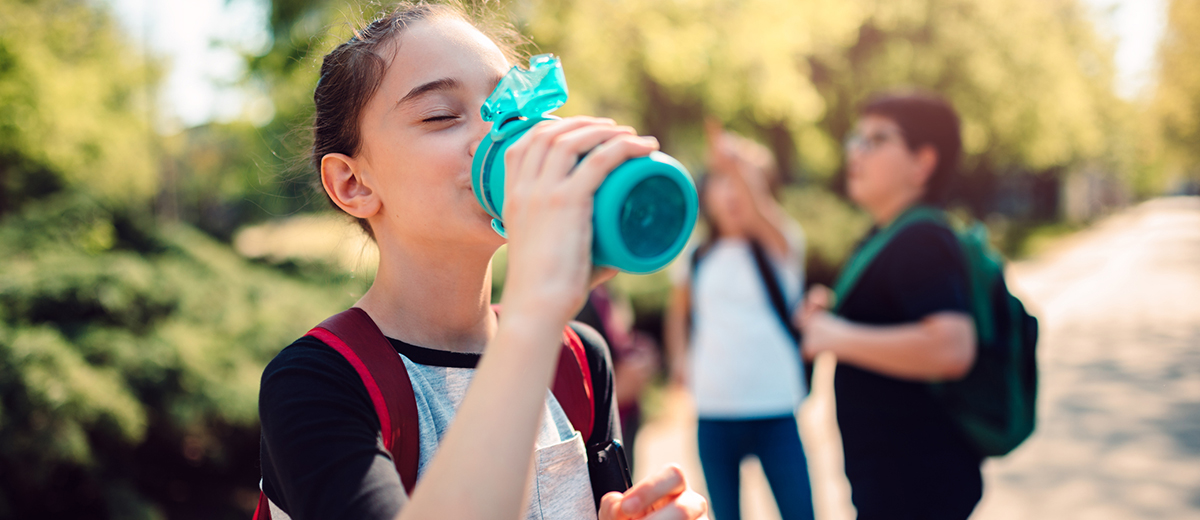Dehydration is more common than you probably think. In a recent study of children aged 6 to 19 years old, 54.5% were inadequately hydrated.
But why is it so important to stay hydrated? To put it simply, adequate hydration is essential for basic health. Water is crucial for the proper function of the body’s:
- Circulatory system
- Metabolism
- Temperature regulation
- Waste removal
When the body is dehydrated, it cannot function properly and there can be devastating and potentially life-threatening results. Mild dehydration can cause headaches, irritability, poor physical performance, and reduced cognitive functioning. And when a child is dehydrated, it will likely have implications on his or her performance in school.
How can children stay hydrated?
According to CHOC Children’s, children should drink the number of 8 ounce cups of water equal to their age, with a maximum of 64 ounces of water for children over the age of 8. For example, if the child is 6 years old, they should drink 48 ounces of water per day. Note, this does not include other beverages they may consume in a day such as milk and juice.
While hydrating fluids can come from food and other beverages, drinking plain water is typically the healthier choice. That’s why it’s important for children to drink plenty of water every day.
What about energy drinks and sweetened beverages?
Even though energy drinks and sweetened beverages are liquids, they should not be used as a source of hydration. In some cases, they can result in dangerous effects on the body. For example, energy drinks can cause dehydration, heart complications, anxiety and insomnia. Sugary drinks can cause weight gain, type 2 diabetes, heart disease, tooth decay, and more.
Inadequate hydration can have significant effects on a child's physical and mental health. School nurses know the importance of educating children on hydration and motivating them to create healthy, long lasting habits.
To shop MacGill’s selection of hydration health education, click here.
To shop MacGill’s selection of paper cups and supplies, click here.





